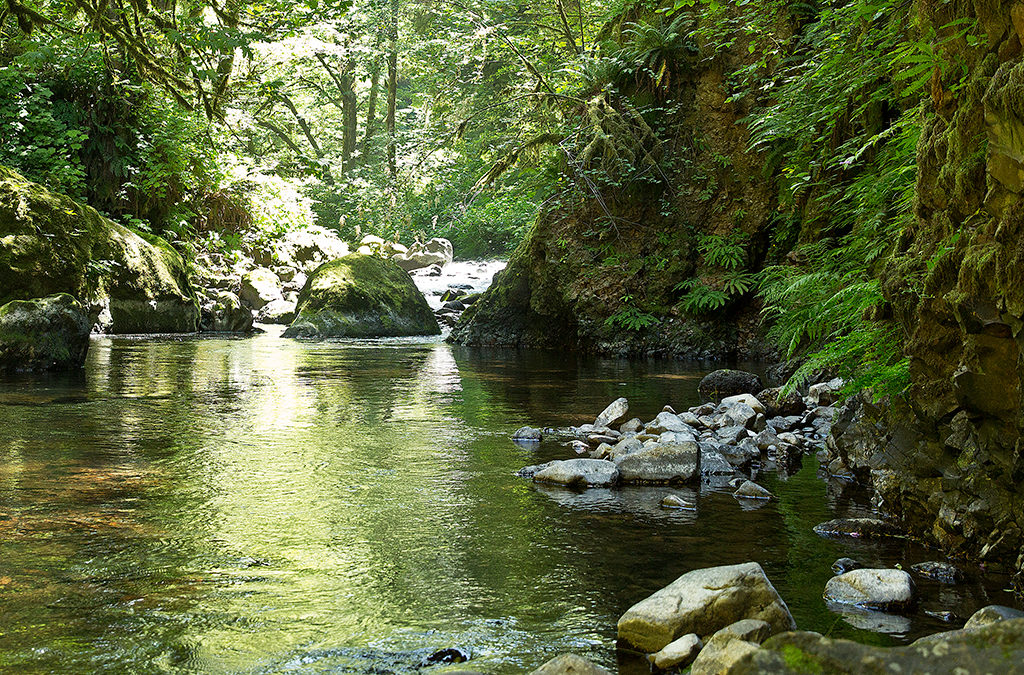After nearly a year of scientific review and negotiations, timberland owners and environmental groups have reached a historic agreement to overhaul Oregon’s forest laws and create significant new protections for salmon habitat in Oregon’s private forests. This Private Forest Accord will, I hope, mark a new chapter for salmon conservation in Oregon and the role the timber industry can play in that effort going forward.
This agreement is not without sacrifice for landowners, sawmills, and the small, family-owned forest sector businesses and the rural communities that work these lands. Simply put, the new rules will reduce the amount of timber private landowners can harvest in order to enhance protections for fish-bearing waterways and the perennial streams that feed them. It also includes a commitment on the part of landowners to provide $5 million per year in funding for conservation efforts. Together, timberland owners and environmental groups will submit these changes to the legislature for consideration and approval in early 2022.
At the end of the day, our ultimate goal as Oregonians isn’t (or shouldn’t be) to reduce timber harvests, but to produce tangible outcomes for salmon.
We meet this agreement with cautious optimism but also apprehension. I think this process has been particularly difficult for those of us who lived through development of the Northwest Forest Plan for spotted owls in the 1990s and the incredible economic and social fall-out that ensued in Oregon’s rural areas. I know some celebrated the shutdown of federal timber harvests, but in some parts of Oregon and within the forest sector, there remains a deep sense of loss and regret from those decisions made 30 years ago. Forests are often viewed as the silver bullet for wildlife recovery but as we’ve seen with the spotted owl, that is not always the case. I sincerely hope we’ve made the right decision by taking a voluntary step forward to expand habitat protections and that these concessions are meaningful and manageable. At the end of the day, our ultimate goal as Oregonians isn’t (or shouldn’t be) to reduce timber harvests, but to produce tangible outcomes for salmon.
I want Oregonians to know that when it comes to environmental sustainability, forestland owners are not the enemy. We are stewards of the land and take that responsibility seriously. We also make great partners. I encourage everyone to help build on this historic effort by supporting your local boots-on-the-ground conservation groups that work cooperatively with landowners to identify and enhance high-impact habitat areas. As an example of this kind of work, Hampton recently collaborated with the North Coast Watershed Association to revitalize the Big Creek watershed for salmon populations, strategically placing woody debris in streams and removing obstacles to fish passage. These kinds of collaborative, targeted efforts will continue to produce significant results for salmon populations without compromising the viability of our important natural resources industries.
We’re proud of what we do, and with the Private Forest Accord, we hope all Oregonians can share a little more in that pride. The forest sector has an important role to play in Oregon’s future and not just in our rural areas. We help keep our state green and growing, and produce much needed renewable building products, which I believe will someday reshape our urban-built environments, turn high-rise buildings into carbon banks, and reduce our dependence on energy intensive steel and concrete. We have only just begun to tap the full potential of our working forests and our wood manufacturing sector to address a myriad of social, economic, and environmental needs. This industry can and will persevere.
Steve Zika, CEO



Very well stated, thank you again for all you do for our community.
Bob Burr, mayor Willamina